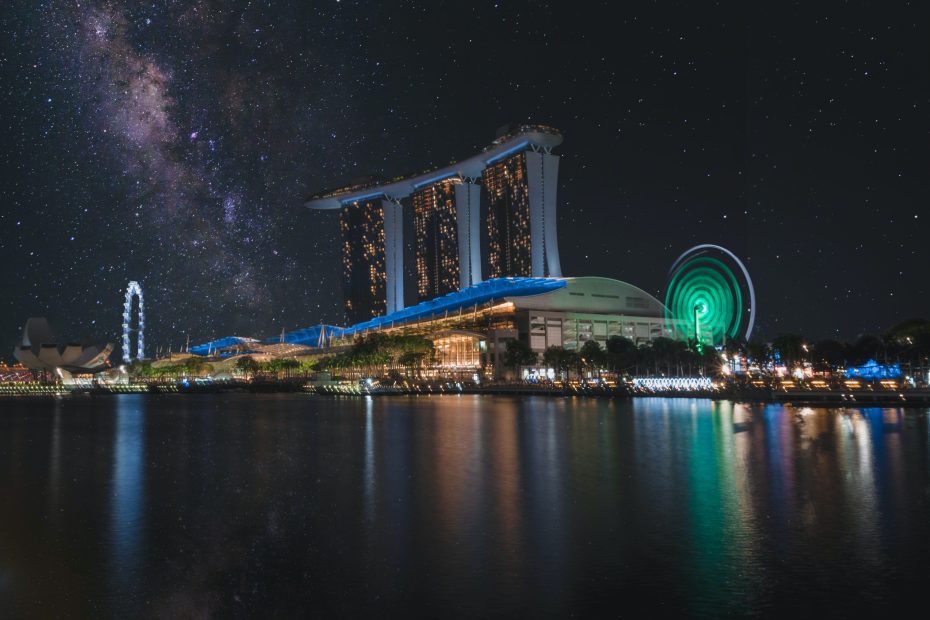Table of Contents
Introduction
Known for its bustling finance and commerce hub, multiculturalism is also an integral part of Singapore’s national identity. With ethnic Chinese making up the majority along with significant Malay, Indian and Eurasian populations, Singapore is a melting pot of cultures and religions. This diversity comes alive in the country’s vibrant calendar of festivals and events that reflect the diverse heritage of its people. From the explosive fireworks of Chinese New Year to the Technicolor parades of Thaipusam, Singapore’s festivals are a treat for the senses.
Chinese New Year
Chinese New Year is the most important festival for the Chinese community in Singapore. Marking the beginning of the lunar new year, it is steeped in rich symbolism from ancient Chinese traditions. Homes are decked out in red and gold for prosperity and luck. Families gather for reunion dinners on the eve of Chinese New Year. Children receive red packets filled with money from elders. The crackling of fireworks signal new beginnings and ward off evil spirits. Lion dances, dragon dances and cultural shows add to the festive fervor. As a national public holiday, Chinese New Year is celebrated by all Singaporeans, underlining the social harmony.
Thaipusam
Thaipusam is a Hindu festival commemorating the occasion when Goddess Parvati gifted Lord Murugan a vel or spear to vanquish evil demons. Devotees of Lord Murugan mark the festival with acts of devotion like carrying kavadi. This involves carrying structures of wood, peacock feathers and milk balanced on the shoulders. The kavadi bearers undertake vows and penance weeks before Thaipusam. The festival culminates in an enchanting procession that starts from Sri Srinivasa Perumal Temple in Little India and ends at Chettiar Hindu Temple. It showcases Singapore’s vibrant Indian culture.
Pongal
Pongal is a harvest festival widely celebrated by Tamils in Singapore. The name means “to boil over” referring to the tradition of boiling rice in milk in new clay pots to symbolize prosperity. Homes are decorated with kolam rice flour art. Families gather to prepare ven pongal, a dish made of rice, milk, jaggery, nuts and raisins. The multi-day festival includes Bhogi Pongal, Mattu Pongal and Kaanum Pongal. Various customs are followed like bonfires, prayers to the sun god and cattle worship. Pongal highlights Tamil culture and heritage in Singapore.
Hari Raya Puasa
Marking the end of Ramadan fasting, Hari Raya Puasa is celebrated by Malay Muslims with great fervor. Weeks before Hari Raya, Malay families spring clean their homes and shop for new clothes and delicacies. On the day itself, they gather for prayers and feast on dishes like ketupat, rendang and lemang. Visiting relatives and friends after the prayers, seeking forgiveness and exchanging goodwill wishes are important Hari Raya customs. Homes are decorated with oil lamps and pelita lights. The light-up of Geylang Serai is a key highlight of the festive atmosphere.
Deepavali
Deepavali or Diwali symbolizes the victory of good over evil and light over darkness. Homes are lit up with clay lamps and decorative kolams. Hindus celebrate by wearing new clothes, exchanging sweets and performing prayers called Lakshmi puja. Crackers are burst to signify the dissipation of spiritual darkness. Little India gets into full festive swing with bazaars, cultural performances and elaborate light-ups. The colorful Deepavali Bazaar sells traditional clothing, decorations, savories and sweets for the celebration.
Christmas
Though not a public holiday, Christmas is celebrated with much fanfare in Singapore. Shopping belts like Orchard Road dazzle with elaborate Yuletide light-ups and decorations. Christmas fairs and bazaars stock goodies like fruitcakes, cookies, Yule logs and tarts. Caroling performances bring alive the Christmas spirit while recounting the nativity story. On Christmas Eve, Catholics attend midnight mass before gathering with family for Christmas lunch and gift exchange. This holiday represents the diversity of faiths and how cultures can assimilate in Singapore.
Other Notable Festivals
Beyond the major festivals, Singapore hosts other events that exemplify its cultural diversity. The Chingay Parade is a carnival-like street parade celebrating Chinese, Malay, Indian and Western cultures. Giant floats, dance troupes, light shows and stilt walkers put up an unforgettable show. Singapore Food Festival is a gastronomic celebration of the multi-ethnic local cuisine. Both festivals witness participation from all communities reflecting Singapore’s multicultural fabric.
Conclusion
Singapore presents a harmonious model of different cultures and faiths co-existing together. The festivals celebrated across the calendar exemplify this diversity. From holy occasions like Hari Raya Puasa to lively celebrations like Chingay Parade, the festivals reveal the rich heritage of the Chinese, Malays, Indians and other communities that call Singapore home. They underline how Singaporeans can preserve their distinct traditions yet embrace each other’s differences to build a cohesive society. Through these celebrations, Singapore proudly proclaims its dynamic cultural mosaic to the world.
FAQ
Q: Which is the biggest festival celebrated in Singapore?
A: Chinese New Year is celebrated as the biggest festival in Singapore as ethnic Chinese form the majority of the population. It is a national public holiday.
Q: What major religions are represented in Singapore’s festivals?
A: The major religions represented are Islam in Hari Raya Puasa, Hinduism in Thaipusam and Deepavali, Buddhism and Taoism in Chinese New Year, and Christianity in Christmas celebrations.
Q: How do the festivals promote cultural harmony?
A: Though rooted in distinct cultures, the festivals are celebrated by all communities together. This bonds people and creates inter-cultural understanding and respect.
Q: What makes Singapore’s festivals unique?
A: The festivals showcase diverse cultures and faiths thriving together. The celebrations combine ethnic traditions with a modern, vibrant Singaporean identity.
Q: How do festivals contribute to Singapore’s economy?
A: Festivals boost domestic tourism and commerce. Special bazaars, shopping promotions and events add vibrancy and revenue during the festival season.
